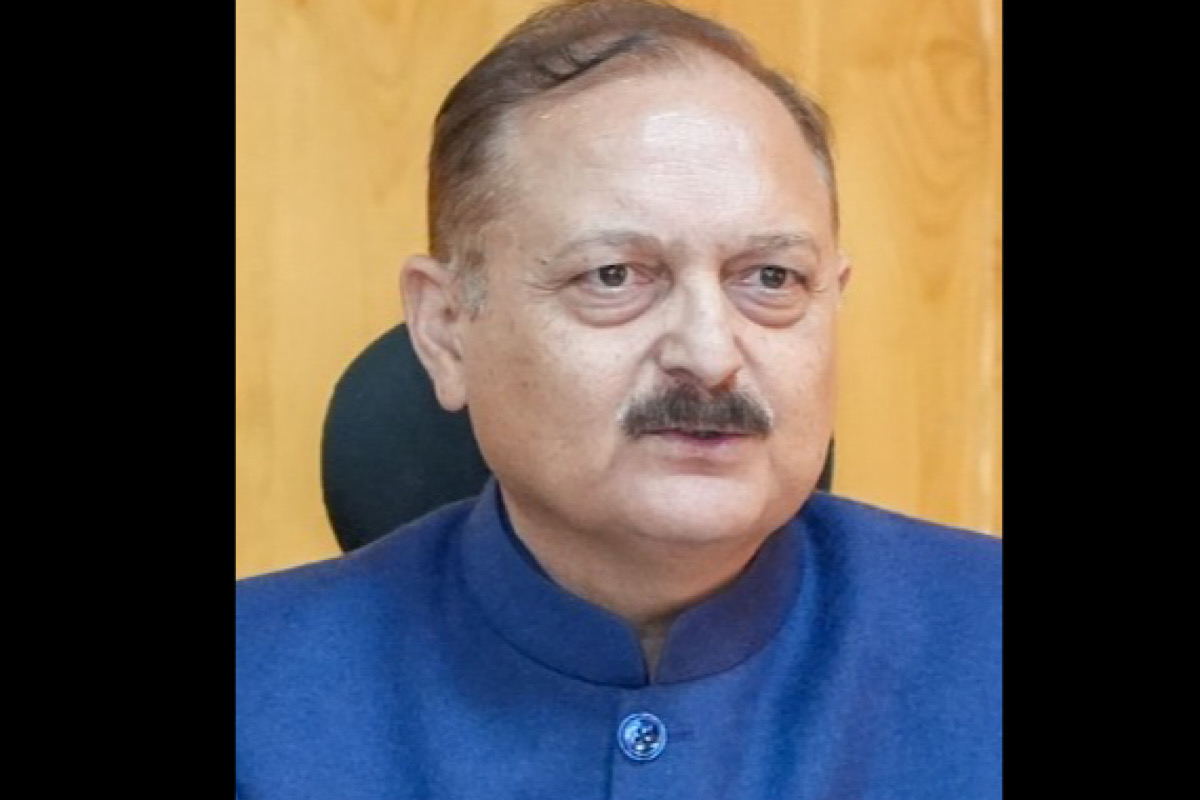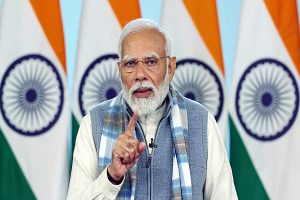A meeting was held to discuss strategy to tackle the challenge of glacial lake outbursts in Ladakh and a comprehensive roadmap aimed at bolstering emergency response mechanisms was charted out by the stakeholders.
Faced with the phenomenon of Glacial Lake Outburst Flow (GLOF) in the cold desert region of Ladakh, Lt Governor’s Advisor Pawan Kotwal stressed the need for a comprehensive roadmap to effectively address the challenge.
Due to the climatic change, the Union Territory of Ladakh has in the recent years witnessed rapid melting of glaciers due to which artificial lakes are formed on the mountain slopes that burst due to accumulating pressure resulting in devastating floods.
Kotwal discussed with experts the hazards, challenges and the way forward to tackle the situation.
The need for comprehensive strategies to mitigate the potential risks posed by GLOF occurrences in UT Ladakh was highlighted. The meeting served as a platform for productive dialogue and collaborative decision-making. The officials contributed insights and reaffirmed their commitment to safeguarding Ladakh’s population and infrastructure from GLOF hazards.
Dean of Research Studies at the University of Ladakh Dr Subrat Sharma presented an innovative project aimed at revolutionising weather monitoring and space applications in Ladakh, which is a sophisticated system designed to address the unique environmental challenges faced by Ladakh. The Dean explained the role of automatic weather stations in enhancing real-time weather monitoring capabilities across Ladakh.
These stations, equipped with cutting-edge sensors and data collection mechanisms, promise to provide accurate and comprehensive meteorological data.
Kotwal directed the officials in identifying vulnerabilities, enhancing early warning systems, fostering community resilience, sensitization, and mock drills against such natural calamities. He emphasised the importance of dedication to proactive measures, including rigorous monitoring of glacial lakes, infrastructure reinforcement and public awareness campaigns.
It was decided to implement the devised strategies, ensuring a coordinated and resilient approach towards mitigating GLOF risks in UT Ladakh.
The meeting was attended by the ADGP of Ladakh Police, Commissioner/Secretary of Forest Department, Commissioner/Secretary of Planning Department, Secretary of DMRRR Department, Deputy Commissioner, Leh; Senior Superintendent of Police, Leh; Superintendent of Police, UTDRF, UT Ladakh; Director of Indian Meteorological Department and Representative from Ladakh University, EOC In-charge.
The Deputy Commissioner, Kargil; Senior Superintendent of Police, Kargil; Representative from National Remote Sensing Centre (NRSC); Representative from Indian Institute of Remote Sensing (IIRS) joined the meeting virtually.












